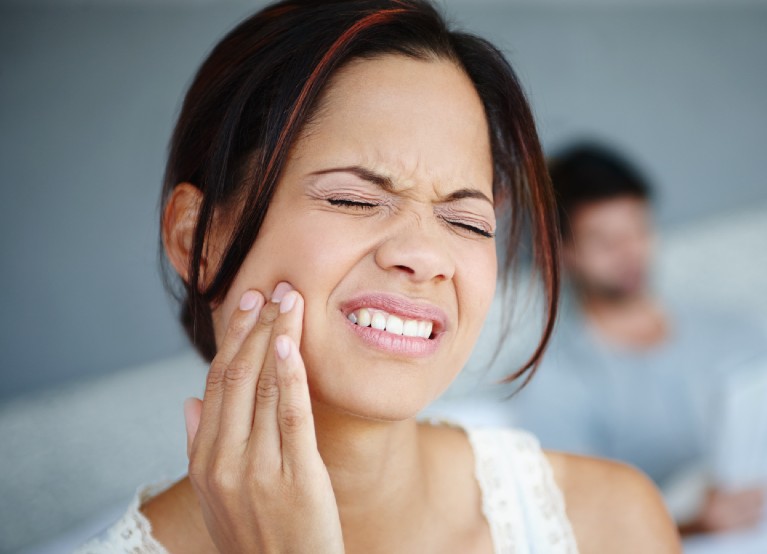How to handle dental emergencies
Just like other important parts of the body, the mouth is subject to accidents. Sometimes the injury can be as minor as biting your tongue. Other times, the injury is more serious and requires professional care.
The best approach is to do what you can to prevent a dental emergency. Only bite or chew foods that are soft enough for your teeth to handle. Avoid foods like ice, popcorn kernels, and hard candies that can crack your teeth. If you're playing sports, wear a mouthguard. And if you have piercings in and around the mouth, pay special attention to oral hygiene.
But accidents happen and knowing how to handle a dental emergency will help you or someone you love to recover more quickly and easily.
Here's how to handle common dental emergencies and injuries:
- Toothache: A toothache is usually a sign that something is wrong. Rinse your mouth with warm water and gently clean between teeth with floss or an interdental cleaner. If pain persists or a fever develops, call your dentist right away.
- Knocked out tooth: Hold the tooth by the crown (top) and rinse off the root in water without removing any gum tissue. Call your dentist right away and have your tooth reattached as soon as possible for the best chance at a successful outcome.
- Injury to cheek, lip, or tongue: Clean any wounds to these areas with a soft, clean cloth and apply cold compress to reduce swelling. If bleeding persists, go to the ER and call your dentist immediately.
- Cracked tooth: A sharp pain from biting down can indicate a cracked tooth. For cracked, chipped, or broken teeth, save any tooth fragments and then rinse your mouth out with warm water to clean the area. Contact your dentist right away. Use cold compresses to minimize swelling.
- Object stuck between teeth: Gently floss between the teeth to remove the object(s) and avoid cutting into gums. If the object doesn't come loose, call your dentist.
- Jaw injury: DON'T TRY TO ALIGN THE JAW! Immobilize it by tying a bandage or cloth around the jaw and over the top of the head. Go to the emergency room immediately and call your dentist after an emergency evaluation.
- Broken or lost crown: When your crown breaks or loosens, contact your dentist right away.
- Broken or lost veneer: If your veneer breaks or comes loose, you may experience sensitivity to hot and cold. Call your dentist right away for the best cosmetic restoration.
- Root canal infection: If you experience severe persistent pain or swelling after your root canal, call your dentist immediately.
- Baby tooth loss: For bleeding after a baby tooth loss, fold and place a clean gauze or cloth over the bleeding area. Have the child bite on the gauze with pressure for 15 minutes. If bleeding persists, call your dentist.
- Oral piercing infection: Contact your dentist right away if you experience swelling of the tongue, choking on/swallowing jewelry, or have bleeding or pain. If your breathing is imparied, get emergency medical attention immediately.
- Allergic reaction: Difficulty breathing, swelling, or dizziness may be life threatening, so seek medical attention immediately and call your dentist after an emergency evaluation.
Emergencies often occur when we least expect them to. The best way to prepare for a dental emergency is to plan. Stock up on oral health essentials, like gauze, clean cloths, dental wax and pain reliever. And make sure you have your dentist’s after-hours contact information handy in case you ever need it.


